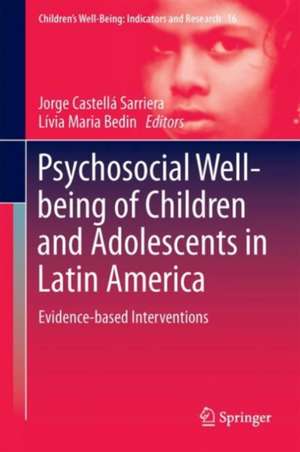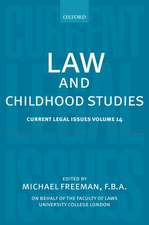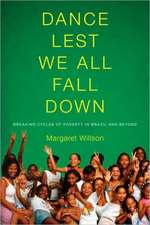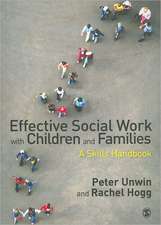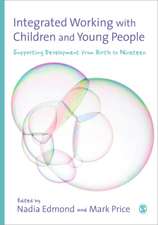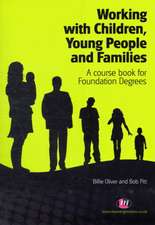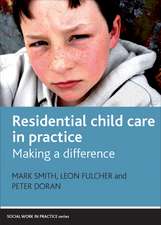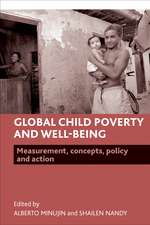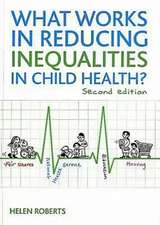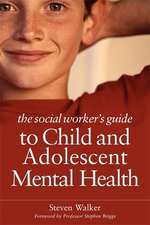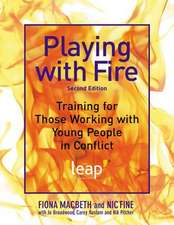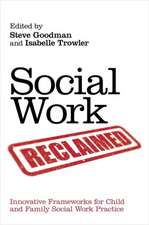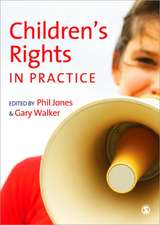Psychosocial Well-being of Children and Adolescents in Latin America: Evidence-based Interventions: Children’s Well-Being: Indicators and Research, cartea 16
Editat de Jorge Castellá Sarriera, Lívia Maria Bedinen Limba Engleză Hardback – 16 mai 2017
| Toate formatele și edițiile | Preț | Express |
|---|---|---|
| Paperback (1) | 564.51 lei 38-44 zile | |
| Springer International Publishing – 8 aug 2018 | 564.51 lei 38-44 zile | |
| Hardback (1) | 578.29 lei 38-44 zile | |
| Springer International Publishing – 16 mai 2017 | 578.29 lei 38-44 zile |
Din seria Children’s Well-Being: Indicators and Research
- 5%
 Preț: 1103.22 lei
Preț: 1103.22 lei - 15%
 Preț: 649.06 lei
Preț: 649.06 lei -
 Preț: 391.99 lei
Preț: 391.99 lei -
 Preț: 396.24 lei
Preț: 396.24 lei - 18%
 Preț: 730.16 lei
Preț: 730.16 lei - 15%
 Preț: 703.38 lei
Preț: 703.38 lei - 20%
 Preț: 570.97 lei
Preț: 570.97 lei - 24%
 Preț: 641.87 lei
Preț: 641.87 lei -
 Preț: 389.70 lei
Preț: 389.70 lei - 20%
 Preț: 514.25 lei
Preț: 514.25 lei - 5%
 Preț: 712.81 lei
Preț: 712.81 lei - 20%
 Preț: 553.17 lei
Preț: 553.17 lei -
 Preț: 397.16 lei
Preț: 397.16 lei - 20%
 Preț: 481.39 lei
Preț: 481.39 lei - 18%
 Preț: 1110.86 lei
Preț: 1110.86 lei - 18%
 Preț: 891.48 lei
Preț: 891.48 lei -
 Preț: 363.57 lei
Preț: 363.57 lei - 18%
 Preț: 895.76 lei
Preț: 895.76 lei - 5%
 Preț: 1416.81 lei
Preț: 1416.81 lei - 5%
 Preț: 711.32 lei
Preț: 711.32 lei - 18%
 Preț: 945.79 lei
Preț: 945.79 lei - 5%
 Preț: 715.00 lei
Preț: 715.00 lei - 18%
 Preț: 947.35 lei
Preț: 947.35 lei - 5%
 Preț: 912.67 lei
Preț: 912.67 lei - 5%
 Preț: 722.12 lei
Preț: 722.12 lei
Preț: 578.29 lei
Preț vechi: 722.86 lei
-20% Nou
Puncte Express: 867
Preț estimativ în valută:
110.65€ • 115.86$ • 91.78£
110.65€ • 115.86$ • 91.78£
Carte tipărită la comandă
Livrare economică 05-11 aprilie
Preluare comenzi: 021 569.72.76
Specificații
ISBN-13: 9783319556000
ISBN-10: 3319556002
Pagini: 339
Ilustrații: XVIII, 339 p. 21 illus., 18 illus. in color.
Dimensiuni: 155 x 235 mm
Greutate: 0.7 kg
Ediția:1st ed. 2017
Editura: Springer International Publishing
Colecția Springer
Seria Children’s Well-Being: Indicators and Research
Locul publicării:Cham, Switzerland
ISBN-10: 3319556002
Pagini: 339
Ilustrații: XVIII, 339 p. 21 illus., 18 illus. in color.
Dimensiuni: 155 x 235 mm
Greutate: 0.7 kg
Ediția:1st ed. 2017
Editura: Springer International Publishing
Colecția Springer
Seria Children’s Well-Being: Indicators and Research
Locul publicării:Cham, Switzerland
Cuprins
Part I: Aspects related to children’s well-being.- Chapter 1. Advances on Socio-Community Well-Being (Jorge C. Sarriera).- Chapter 2. Spirituality and children and adolescents well-being: theoretical and empirical approach (Miriam R.W. Strelhow).- Chapter 3. Well-being of children in residential care centers (Fabiane F. Schutz).- Chapter 4. Use of software to improve child maltreatment detection (Tiago Calza).- Chapter 5. Neighbourhood and housing as explanatory scales of children's quality of life (Graciela H. Tonon).- Chapter 6. Socio-demographic profile of child well-being in Chile (Javier Guzmán).- Chapter 7. Meanings and social contexts of well-being in children and adolescents from Chile (Jaime Alfaro).- Chapter 8. School and Neighborhood: Influences of subjective well-being in Chilean children (Denise Oyarzún).- Chapter 9. Fatherhood in adolescence and quality of life: a qualitative study of the experience of being an adolescent father (S.G. Câmara).- Part II: Intervention on Children Psychosocial Well-Being.- Chapter 10. Defining psychosocial well-being indicators for children and adolescents (Jorge C. Sarriera).- Chapter 11. Environmental Psychology and child well-being: promoting connections with nature and community (Francielli Galli).- Chapter 12. Rights and material resources as indicators of child well-being: the challenge of promoting protagonism (Tiago Calza).- Chapter 13. Leisure and technology as tools to promote child well-being (Fabiane F. Schutz).- Chapter 14. Subjective well-being intervention: focus on children interpersonal relationships (Bibiana R. Santos).- Chapter 15. Intervention in self-concept: a path to promote subjective well-being (Cristina Hasse).
Notă biografică
Jorge Castellá Sarriera is a Professor of Psychology at the Federal University of Rio Grande do Sul (UFRGS/Brazil). Dr. Sarriera has been leading the Research Group in Community Psychology (GPPC) since 1993. Dr. Sarriera received his Ph.D. in Social Psychology from the Autonomous University of Madrid (Spain) in 1993; and was a post-doctoral fellow at the University of Barcelona (Spain) and at the University of San Francisco (United States). Dr. Sarriera is a grade 1A researcher for the National Council for Scientific and Technological Development (CNPq) since 2007, and has received an award for the 2015 researcher of the year in the State of Rio Grande do Sul for Humanistic and Social Sciences by FAPERGS. Dr. Sarriera holds the position of coordinator of international research projects with Latin American countries (PROTEBA), and is a member of the ISCWeB network. Dr. Sarriera is also the coordinator of international partnerships with the University of Girona (Spain), the Autonomous University of Madrid (Spain), the University of Barcelona (Spain), and the University of Buenos Aires (Argentina). Dr. Sarriera’s research interests include child and adolescents well-being; community psychology and health; immigration, leisure / free time in adolescence; psychosocial intervention in well-being; social programs and evaluation.
Lívia Maria Bedin is a Professor of Psychology and member of the Research Group in Community Psychology (GPPC) at the Federal University of Rio Grande do Sul (UFRGS/Brazil). Dr. Bedin was a post-doctoral fellow at the Research Institute for Quality of Life in the University of Girona (Spain), and is a board member of the International Society for Child Indicators (ISCI), participating for the last 8 years in international research projects, such as the International Survey of Children’s Well-Being (ISCWeB), and the Trans-Latin Project for the Study of Well-Being in Adolescence (PROTEBA). Dr. Bedin holds a Ph.D. in Psychology and a M.Sc. in Psychology from the Federal University of Rio Grande do Sul (Brazil), and was a visiting researcher at the University of Buenos Aires (Argentina). Dr. Bedin’s research interests include well-being and quality of life, childhood and adolescence, adolescents-parents relationships, research methodology, multivariate statistical analyses and structural equation modelling.
Textul de pe ultima copertă
This book discusses child well-being, with children and adolescents as key informants, from a Latin American perspective. It explores theoretical and empirical issues related to well-being and associated aspects, in order to understand the well-being of this population. Topics analyzed in this volume address for instance environment and community, rights, leisure time, technologies, interpersonal relationships and spirituality and their implications for changes in the well-being in children and adolescents. Especially relevant for scholars and professionals in the social and health sciences, as well as policy makers, seeking to promote child well-being, regardless of the area in which they operate.
Caracteristici
Discusses the theme of child well-being from a Latin American perspective Presents research from the point of view of children Highlights interventions on health promotion prevention for children and adolescents in Latin America
